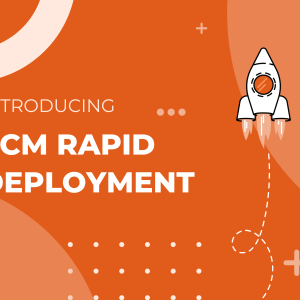Models of Case Management in Human Services
We know that being a case manager is no easy feat. The human services case management process is made up of many different stages. From screening and assessing participants to following up with them and ensuring follow through with referral 一it can be a long and winding road.
In addition, case managers need to provide their clients with care on a case-by-case basis, while still sticking to certain standards of care and practice.
Various case management models fill this need by providing a framework for managers on how to provide the most effective and suitable comprehensive care. But how do you know which case management model is best for your organization?
Let’s look at the various models of case management and how they can be used to deliver essential care practices and services.
What Is A Case Management Model?
A case management model is a system or approach to case management. It provides some much-needed structure to the human services process. It gives case managers a set of guidelines and procedures to follow when delivering their client’s health and human services needs.
Each client’s situation in human services is unique, depending on their specific needs and restraints. For example, an elderly person faced with homelessness may need entirely different care from children with mental health issues. Different situations will call for different case management models. And by using the correct model, you can provide faster, more efficient support to your clients.
Top 4 Models Of Case Management In Human Services
So what case management models are there and how are they different? There are four main models of case management which we cover below.
1. Brokerage model
The brokerage case management model focuses on needs evaluation, service referrals, and the supervision of ongoing support. In this model, case managers inform clients of the services available to them and how to access them. They essentially act as a middleman between the client and human service resources. A ‘broker’ if you will.
It typically involves little one-on-one client engagement and focuses more on office-based services. This is the briefest case management model — the relationship between case managers and their clients is often short-term.
A good example of a situation where the brokerage model is most appropriate is if a person is seeking disability support. More often than not, a case manager from a human services agency wouldn’t be able to provide the necessary medical care. But they can assess the patient’s needs and assign them a licensed medical practitioner. They also connect them with community groups, sporting clubs and support groups, providing information about what support is provided. The case manager monitors the situation and follows up with the client to ensure they are getting the care they need.
2. Intensive case management
Instead of making referrals to other human services providers, case managers using the intensive model provide a more direct, hands-on service. The aim of this model is to deliver high-quality support services that involve more individual attention than other models.
The intensive case management model is most often used in cases of complex social issues and clients needing ongoing psychosocial rehabilitation.
For example, a victim of domestic violence may be suffering from PTSD and anxiety, which prevents them from leading a happy, fulfilled life. A case manager using the intensive model would work closely with the client, giving them individual attention and meeting regularly to track their mental health progress.
3. Clinical case management
In this case management model, the case manager acts as a clinical care provider. This model was developed to help clients obtain essential therapeutic services through direct contact with their case manager. This involves community linking, crisis intervention, or psychoeducation.
For example, a person who develops cancer may be assigned a clinical case manager who acts as a counselor or therapist. The case manager is there to address their mental and emotional needs. They also connect the patient with the right healthcare providers and treatment plans.
Similarly to the brokerage model, this model can also be office-based. However, it involves a more hands-on approach. In the clinical case model, case managers are more involved with the client’s journey and have a higher degree of responsibility.
4. Strengths-based model
As the title suggests, a strengths-based model focuses on the existing resources, support, and strengths of a person, rather than their shortfalls. A case manager using this model is responsible for identifying and analyzing a client’s strengths.
The strengths-based model also emphasizes their community as a powerful external resource. Case managers help clients focus on strengthening their existing relationships, and becoming part of a community that supports them.
For example, an unemployed client struggling to get a job might be assigned a case manager using the strengths-based model. Working together, they can identify skills and personality traits the client already has that would help them get a suitable job. The case manager can also support them by putting together a CV and helping them prepare for their interviews.
How to Choose The Right Case Management Model For Your Organization
We’ve covered the different types of case management models. Now, you may still be wondering “Which case management model is best for my organization?”
The most suitable case management model to use will depend on the situation and requirements of your clients. Here are some factors to consider when choosing the right case management model for you and your team.
- What is the client’s environment?
- What resources does the client already have at their disposal?
- What community and family support does the client have?
- Does the client require continuous, long-term support or short-term, time-bound support?
- How urgent is it to provide services?
- What kind of care can your organization’s case managers provide?
Keep in mind that your organization doesn’t have to stick to one case management model. Sometimes it’s best to use a combination of strategies and principles from different models. As your human service organization grows, you should continually assess whether your current case management model is working for you and your clients.
The Benefits Of Case Management Models
Each of the top 4 case management models is designed to tackle different challenges, scenarios, or cases. By choosing the correct case management model, your organization can better serve each of your patients’ needs.
Here’s how choosing the right case management model can help your organization.
- Better serve the well-being of patients and their families
- Align all case managers across different departments
- Offer the right amount of support at the right time
- Provide uniform care for each client with standardized quality
- Ensure compliance with case management regulations
- Provide a roadmap to guide strategic decisions and investments
Get the Most Out of Your Case Management Model With the Right Case Management System
Although case managers are highly skilled and trained individuals, they’ve often got a lot on their plate. One of the best ways to make their jobs easier is with specifically designed tools and software. No matter the area of human services, there’s always a need for accurate documentation, research, and reporting. And with the right case management system, these administrative tasks can be streamlined in a more efficient and humanized way.
That’s where we come in!
Exponent Case Management is a fully-featured, customizable solution and consolidation tool with world-class support for your human services organization. We offer easy data tracking, implementation services, and reporting on compliance outcomes. With our solution by your side, your organization can look forward to improved incident resolution, compliance tracking, and enhanced visibility and control.
Our team of passionate nerds is all about helping you and your team facilitate positive change and give case management meaning.
Use Exponent Case Management To Transform Your Agency’s Case Management
At Exponent Case Management, we truly value the hard work done by human services professionals and the positive impact they can make. That’s why we want to help you help others change their surroundings and improve their lives.
No matter what case management model you choose, our complete case management app is here to help you implement your chosen model.
Exponent Case Management is passionate about empowering human services professionals from the ground up. Watch this video or register for a live demo to understand why we’re one of the top-rated case management services.




